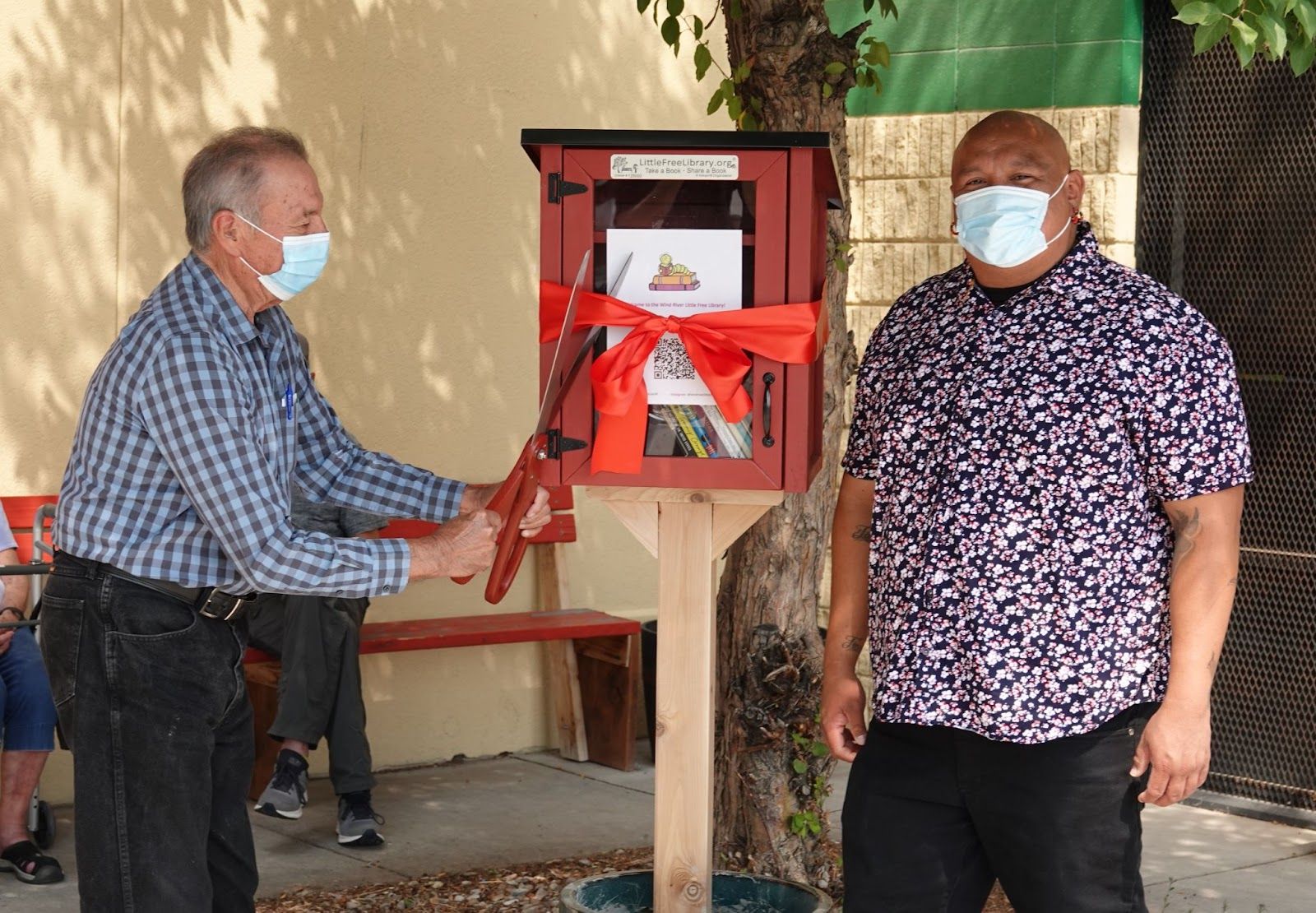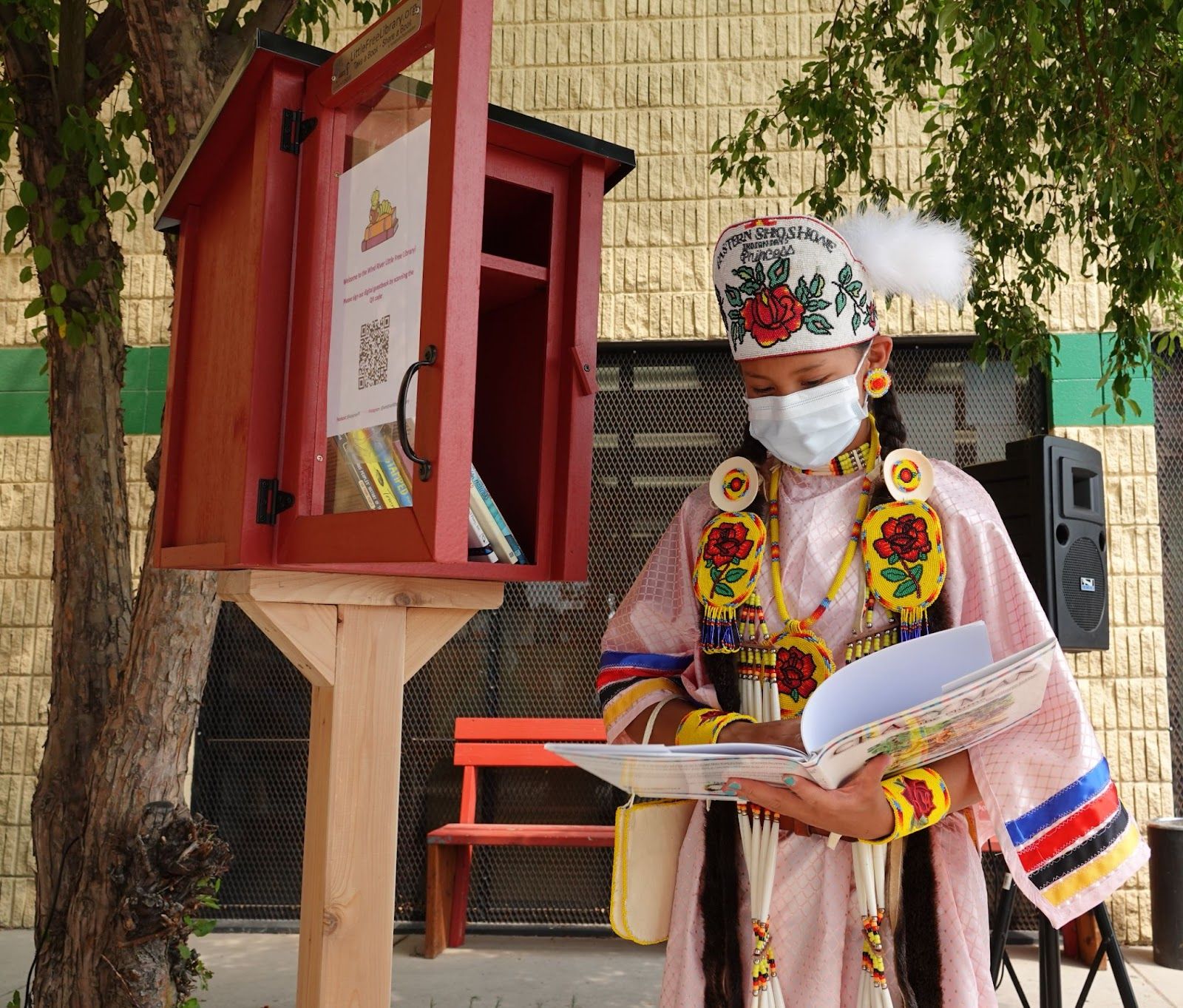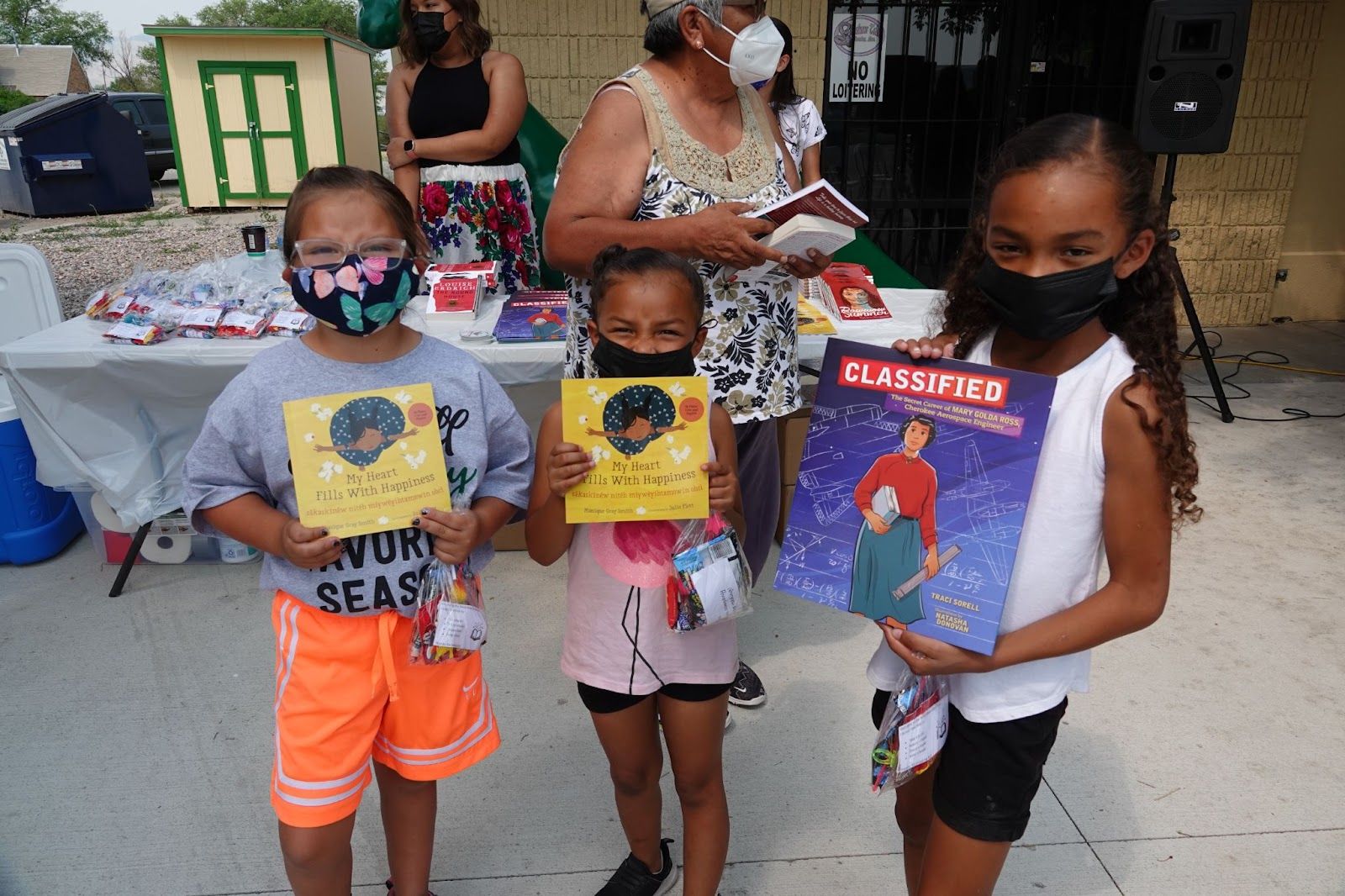John St. Clair, Eastern Shoshone Business Council Chairman, had the honor of cutting the ribbon, surrounded by the community. “We are honored that the 125,000th Little Free Library stands on the Wind River Reservation where it will serve Indigenous youth and their families. Giving us even greater joy is that the community members who use this little library will see their own reflections in the characters and books inside,” said Little Free Library Director of Programs Shelby King. The Little Free Library is located at the Shoshone Tribal Gas Station at 3 North Fork Road. It was granted as part of the Little Free Library’s Impact Library program. While it is not the first Little Free Library on a Reservation — that honor goes to a Navajo Nation one in Window Rock, Arizona — it is still an amazing milestone in and of itself. Its intended purpose is to uplift Indigenous voices, as well as bring the community together. Amanda Leclair-Diaz, a University of Arizona graduate student, submitted the application for the community. She is originally from Fort Washakie and explained that, “Reading is one of the first opportunities people have to be introduced to new worlds, but it’s also a space where individuals can view and connect with characters who are similar to them…. Our youth deserve to read books where they can connect with characters who look like them and recognize their lived experiences in the stories.” Representation and diversity matter. People, regardless of age, need to see themselves in the books they read, and it encourages more reading. This Little Free Library is full of books by and about Indigenous people so that everyone in that community can see themselves in the books they read. Some of the books included in the Little Free Library are Powwow Summer, We Are Water Protectors, and Classified: The Secret Career of Mary Golda Ross, Cherokee Aerospace Engineer. This Impact Library program offers a fully stocked Little Free Library at no cost to the applicant. This helps to not only improve literacy levels, but also to give the community books specifically tailored to them and their needs. It is a common misconception that libraries are readily available to anyone who may want or need to use them. But that is not true. A lot of smaller towns or rural areas may not have an established library. And, if they do it, may rely on volunteers to run it. So, it may not always be available to its patrons during times of need or with regular hours. That is why the Impact Library Program is such a wonderful initiative; it provides books that are readily and always available for anyone who wants to pick one up. It also serves as a way to bring the community together. In total, the Impact Library Program has donated more than 1,350 Little Free Libraries through this initiative. You can read more about the Impact Library program, as well as find ways to donate or apply, here.


